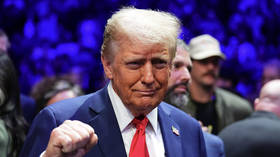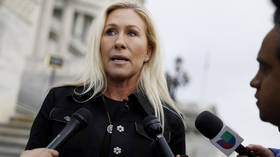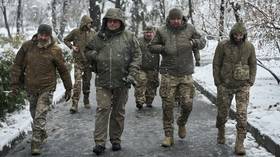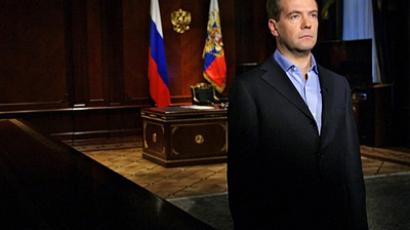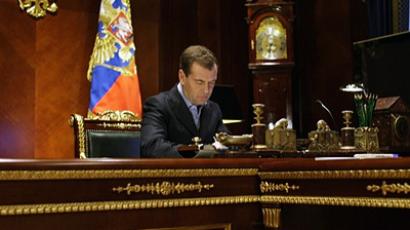Russian president proposes lowering threshold for parties in Duma elections
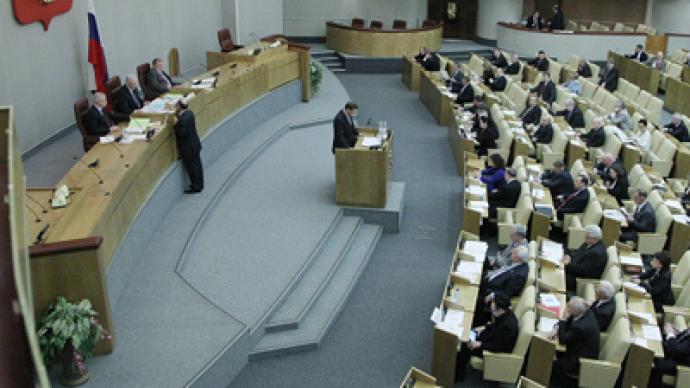
Dmitry Medvedev on Friday submitted a bill to the lower house reducing the electoral threshold from 7 percent to 5 percent.
The draft bill amends legislative acts concerning the distribution of deputy mandates among the parties in the State Duma after parliamentary elections. If adopted, the new legislation will reduce the minimal number of votes needed to enter the parliament from the current 7 percent to 5 percent. The electoral barrier was increased from 5 percent in 2007.Medvedev’s proposal will be considered by the current State Duma. Even if deputies vote for the amendment, the forthcoming elections to the parliament due in December will be held in accordance with the current framework, meaning that parties will still have to clear the 7-percent barrier this time around. Currently, the parties that receive more than 5 percent of the vote but fail to overcome the 7-percent threshold receive no more than two deputy seats. This arrangement only allows party leaders to speak occasionally from the rostrum in the State Duma on the most important issues.If the parliament supports Medvedev’s proposal, applicable parties will be given access to the distribution of deputy mandates in the parliament at the seventh convocation and those which follow it. The president’s move indicates that “the democratic potential of the Russian political system is increasing,” head of the Duma’s Committee on Constitutional Legislation Vladimir Pligin said. Reducing the threshold will make it possible to take into account the interests of “almost all Russian voters during elections,” he told Interfax. The new legislation could help small parties which may become full-fledged by 2016, political scientist Aleksey Makarkin believes. The 5-percent threshold is a usual thing in developed countries, and it will stimulate political competition, he said. However, head of the liberal Yabloko party Sergey Mitrokhin already expressed his disappointment that the initiative will only be realized in 2016 rather than this December. The issue of reducing the current threshold was discussed during a meeting on Tuesday where the president “stressed that this issue is very important for small parties,” State Duma speaker and chairman of the ruling United Russia party’s supreme council Boris Gryzlov said. He noted on Wednesday that the next steps for developing Russia’s electoral system will be made by the new deputy corps elected in December. Medvedev told the Financial Times in an interview published this week that changes to the electoral legislation are long overdue. The structuring of the political system has been finished, he argued. Political competition is necessary, he stressed, adding that the State Duma “must represent the whole political spectrum.”



